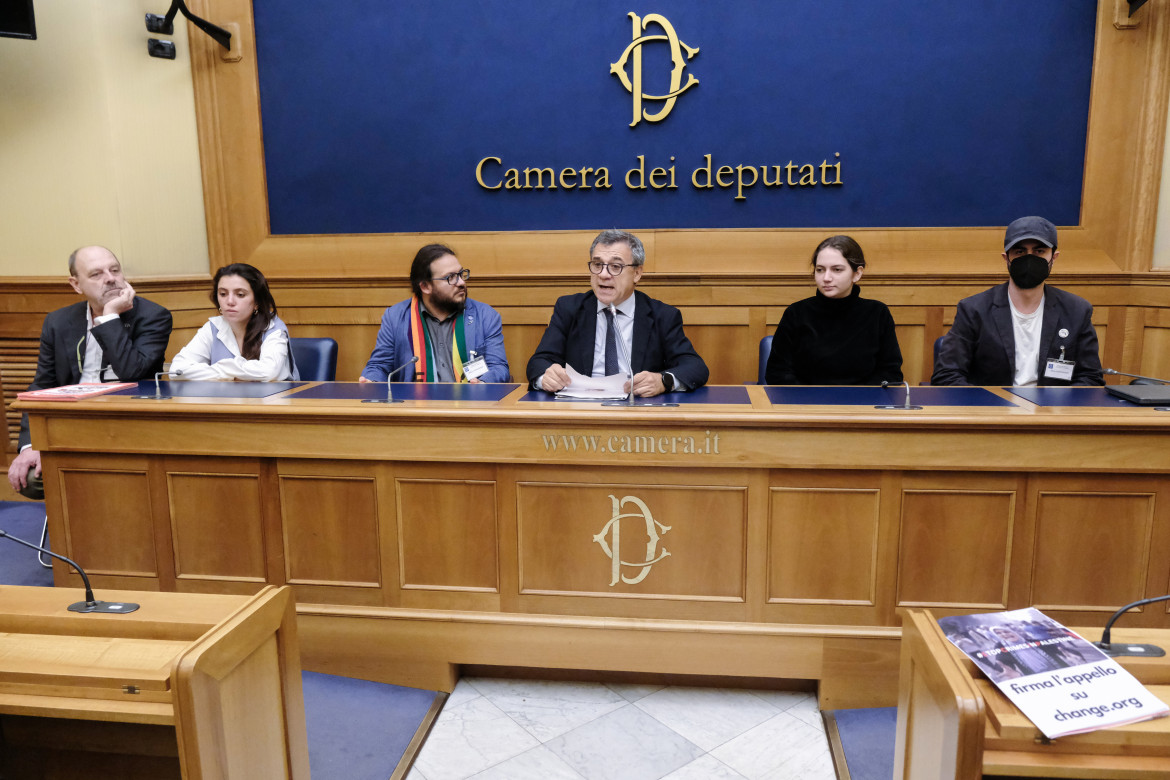Reportage
Israeli conscientious objectors and Palestinian activists demand pressure on Tel Aviv
‘The violence we’re seeing now is the product of a system of inequality. The moment Israelis and Palestinians have equal rights, violence will no longer have any purpose.’

Two Israeli activists and conscientious objectors and two Palestinian activists were invited to Italy for a tour as part of the Obiezione alla guerra (“Objection to War”) campaign, which started in Milan and was set to end in Bari on Saturday.
The Israelis are Sofia Orr and Daniel Mizrahi of Mesarvot, and the Palestinians are Aisha Amer and Tarteel Al Junaidi, of the international organization Community Peacemakers Teams. They were brought together by the NGO Movimento Nonviolento.
After arriving in Milan on Wednesday, Oct. 16, the four young activists (the youngest being Orr, at 19, and the oldest Al Junaidi at 29) have taken part in many meetings with civil society, with an emphasis on young people, bringing their testimony of resistance and collaboration to schools and universities.
On Thursday, in Rome, they spoke in the morning before the Standing Committee on Human Rights in the Chamber of Deputies and in the afternoon gave a press conference at Montecitorio, in the presence of members of the Parliamentary Intergroup for Peace in Palestine and Israel: Laura Boldrini, Stefania Ascari and Francesco Mari, along with Alfio Nicotra of the Peace and Disarmament Network.
Their stories struck a chord with those present in the Chamber of Deputies press room. Sofia Orr, after refusing to do military service, which is mandatory in Israel, was put in a military prison for 85 days. Her decision to become a conscientious objector came after she thought about what she would be endorsing and assisting with her own body if she took part in military service. But her decision was deliberately public and out in the open, because, as she said, “I wanted to actively resist, trying to reach both national and international media and trying to bring the voice and suffering of the Palestinian people into Israeli society.”
Her act of resistance ties together with the resistance practiced on the other side of the more than 700-kilometer wall dividing Israel from the occupied West Bank. Tarteel Al Junaidi, who lives in Hebron in the southern West Bank, told the story of that resistance. “If you see Hebron,” the activist said, “you really understand what occupation means.” There are checkpoints on every corner, attacks and threats from the Israeli military and from settlers, living in colonies inside the old city, and Israeli buildings with metal fences and barbed wire on all sides in the midst of Palestinian homes. But this reality that Al Junaidi is experiencing, she says, “is the same reality that all Palestinians experience throughout the occupied territories.”
“Our voices are not heard,” she said. “That's why I think every Palestinian is born an activist: because they want to tell about how they’re living, they want to bear witness to the denial of rights that they are subjected to.”
One point that all four activists have repeatedly stressed is that there is no point in talking about peace without the elimination of the root cause of the violence: “I think the violence we’re seeing now is the product of a system of inequality. The moment Israelis and Palestinians have equal rights, violence will no longer have any purpose,” Daniel Mizrahi told il manifesto.
When we asked him about possible collaborations and joint actions between Palestinians and Israelis against the occupation, he said that “Israel has created a systematic separation. They want to keep people separated so they don't give them the possibility of making connections, which makes it very difficult to work together for peace and justice, even more so after October 7.” Al Junaidi agreed, saying that “Palestinians only ever see Israelis in the guise of soldiers or settlers.”
When we ask how equality between Palestinians and Israelis could be achieved, Mizrahi's answer, shared by all the other activists, is: “International pressure on the government of Israel. But real pressure, and the application of international law that would really make those who are responsible for the war crimes and crimes against humanity we are seeing punishable for their crimes.”
Originally published at https://ilmanifesto.it/insieme-per-ripudiare-la-guerra on 2024-10-25
